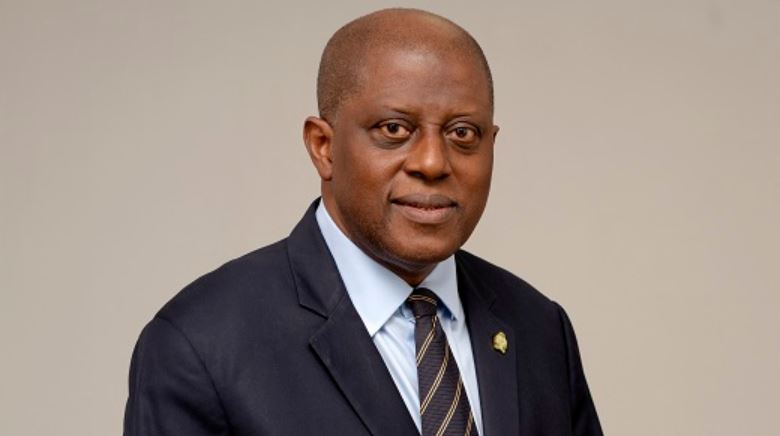Paragraph 1: Nigeria’s Economic Resurgence and Investor Confidence
Nigeria’s economic landscape is experiencing a revitalization, driven by recent reforms implemented by the Central Bank of Nigeria (CBN). These reforms have successfully addressed a substantial $7 billion foreign exchange backlog, fostering transparency in the FX market and restoring investor confidence. Consequently, foreign capital is returning to the country, signifying renewed optimism in Nigeria’s economic prospects. The first quarter of 2025 witnessed a significant influx of $5.6 billion in capital inflows, a substantial increase compared to previous periods, highlighting the positive impact of these reforms on investor sentiment.
Paragraph 2: CBN Reforms and Macroeconomic Stability
The driving force behind this positive economic shift is attributed to the reforms spearheaded by CBN Governor Olayemi Cardoso. Since assuming office in October 2023, Cardoso has prioritized rebuilding Nigeria’s economic foundations and regaining investor trust. Two key interventions have been instrumental in this process: unifying exchange rates and clearing the substantial foreign exchange backlog. These measures have created a more predictable and accessible FX market, enabling investors to access currency and repatriate profits with greater ease. This has significantly reassured international investors about Nigeria’s commitment to a stable and open business environment. International institutions like the World Bank and the IMF have acknowledged the positive impact of these reforms, with the IMF noting a decrease in Nigeria’s sovereign risk spread to its lowest point since January 2020.
Paragraph 3: Attracting Foreign Direct Investment: Key Factors and Challenges
The renewed interest in Nigeria stems from a combination of factors that appeal to foreign investors. Nigeria boasts a large market with over 220 million people, a growing middle class, and untapped potential in sectors like technology, entertainment, and renewable energy. The improved macroeconomic stability, characterized by a more stable naira and increased FX liquidity, further enhances Nigeria’s attractiveness to investors. However, challenges persist, including concerns about insecurity, weak institutions, and corruption, which require ongoing attention to maintain investor confidence. While fiscal incentives play a role, the IMF highlights that stability and profit repatriation are more influential factors for long-term investment decisions.
Paragraph 4: Analyzing Capital Inflows and Sectoral Performance
A closer examination of the capital inflows reveals the dominance of portfolio investment, accounting for the majority of the influx, followed by other investments and a smaller contribution from foreign direct investment (FDI). The banking sector emerged as the primary beneficiary, attracting a significant portion of these inflows, followed by the financing and manufacturing sectors. The United Kingdom was the leading source of these investments. While high yields in Nigeria’s money market attracted significant portfolio flows, analysts caution against relying heavily on this volatile “hot money,” emphasizing the need for stronger FDI in real sectors like manufacturing, ICT, and transport to ensure sustainable economic growth.
Paragraph 5: Recapitalizing the Banking Sector and Rebasing GDP
To achieve ambitious economic targets, such as President Tinubu’s $1 trillion GDP goal by 2030, Nigeria recognizes the need for a robust banking sector. The CBN has initiated a recapitalization drive to empower banks to handle larger transactions and finance large-scale projects, echoing the successful banking reforms of 2004. Furthermore, Nigeria is undertaking a GDP rebasing exercise to provide a more accurate reflection of its economic size and potential. This will incorporate previously underrepresented sectors, such as entertainment, technology, and services, into official statistics, enhancing Nigeria’s image for potential investors and improving economic planning and policy implementation.
Paragraph 6: Addressing Challenges and Charting the Path Forward
Despite the positive developments, challenges remain, including weak FDI inflows due to concerns about insecurity, bureaucracy, and policy inconsistency. The uneven distribution of inflows, concentrated mainly in Lagos and Abuja, necessitates efforts to attract investment to other regions. The dependence on volatile “hot money” also poses vulnerability to external shocks. To sustain the positive momentum, Nigeria must prioritize structural reforms, focusing on improving security, strengthening the rule of law, reducing bureaucracy, and creating a more conducive business environment. These actions, coupled with the existing advantages of market size, macroeconomic stability, and a well-capitalized banking sector, can position Nigeria as a leading investment destination in the Global South. While the current progress is encouraging, continued commitment to both monetary and governance reforms is essential for long-term economic prosperity.














